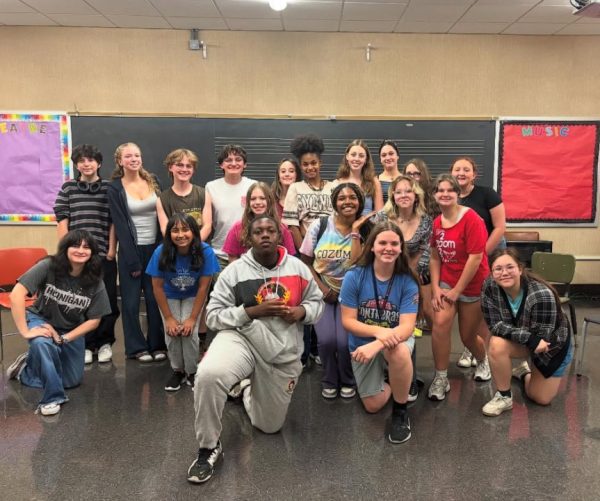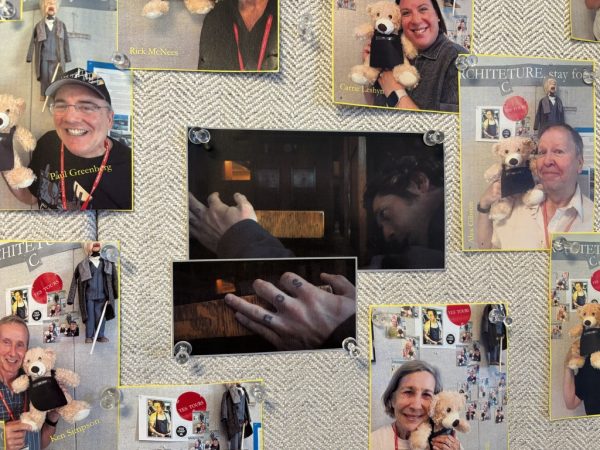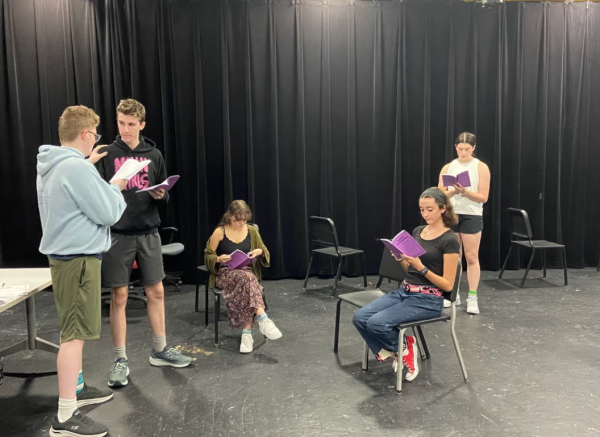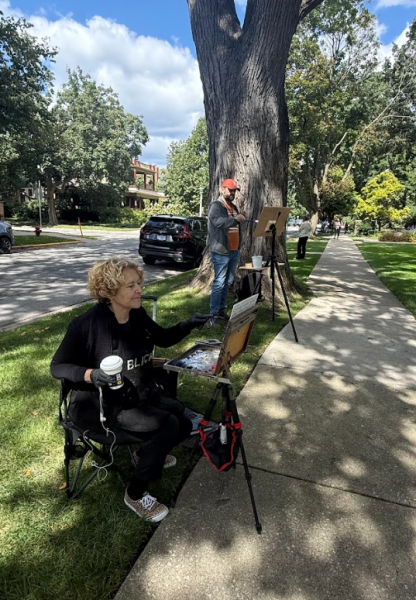A whimsical film tackling a difficult subject: “Jojo Rabbit”
Taika Watiti’s “Jojo Rabbit” is a surprisingly beautiful and heartfelt movie about a German boy growing up during World War Two. The boy, Jojo, played by Roman Griffin Davis, has to break away from the ideas that Nazi propoganda has forced into him and forge his own path. With three-dimensional supporting characters such as Jojo’s mother, played by Scarlett Johansen, Captain Klenzendorf, played by Sam Rockwell, and Elsa, played by Thomasin McKenzie, the movie takes you on an emotional rollercoaster.
Taika Watiti combines satire and sincerity in a way that feels a bit unbalanced, but not to a fault. Moments of hilarious surrealism are sharply contrasted by the real horrors of war, and the genuine characters make the story one I want to watch again and again. If you are debating seeing this movie, I would strongly recommend it.
Now, to address the controversy that comes with this somewhat unorthodox movie.
A recurring argument I saw was people saying it was “too soon” for a movie with this subject matter. While I understand that WWII is a sensitive topic, if we refuse to speak about it or portray it, we stand to make the same mistakes in the future.
Some people had an issue with Watiti’s portrayal of Adolf Hitler, played by Waiti himself. He is depicted as a humorous character for the majority of the movie, and these people thought this portrayal didn’t give Hitler the seriousness he deserved. However, I think that this idea works in the context of this movie because Hitler is a figment of Jojo’s imagination, and Jojo has been taught that Hitler is a good person and someone young boys would love to be friends with. On that note, the sheer amount of people saying this movie wasn’t appropriate for children was absurd. The movie is rated PG-13 for a reason. It is about Nazis and war. Of course it’s not appropriate for small children.
A strange trend in arguments I noticed is critics saying the movie was too dark, versus those who thought it wasn’t dark enough. Those who think it’s too dark go into the movie expecting a comedy, and are taken aback by the very serious moments showing the true horrors of war. I do agree that the advertising for this movie made it seem far more comedic than it is, but I also think in any movie about war there is horror and violence simply due to the nature of the conflict. Those who believe it wasn’t dark enough argue that the comedic aspects of the film downplay the severity of the situation. But without the comedy, the viewer would have no relief from the onslaught of sadness and horror.
War, and all the horrible things that come with it, is a very hard subject to tackle well. However, in my opinion, Waiti has done so with grace and style. A fantastic film overall.






